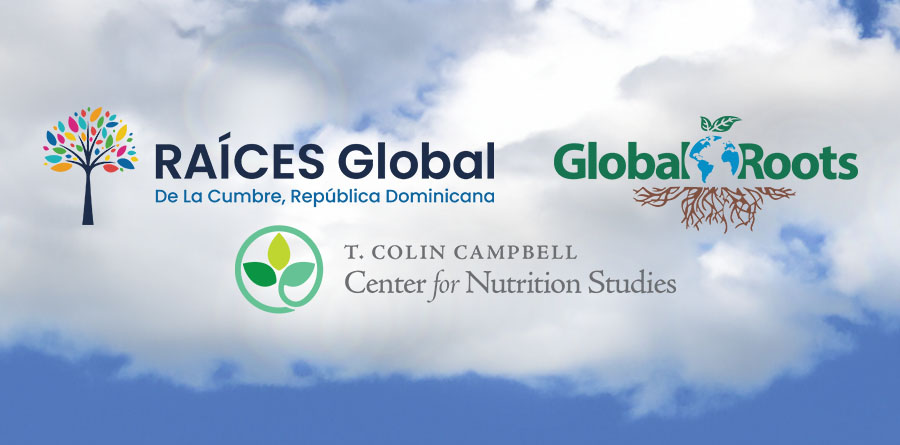
Become a Planetary Steward
Whole systems change, start locally, expand globally
Join us for an upcoming program in the mountains of the Dominican Republic.
January 11–18, 2025 or January 19–26, 2025
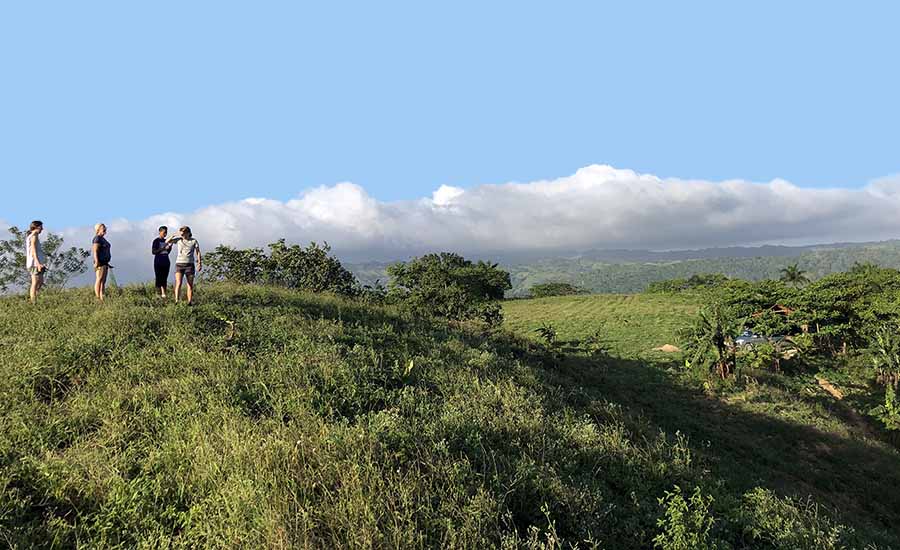
The T. Colin Campbell Center for Nutrition Studies is excited to partner with The Raices Institute and Global Roots to host an 8-day immersion program in the Dominican Republic to realize the potential between the food we eat, our environment, and our communities.
RESTORE
connections between the natural world, our communities, and the planet through food
HEAL
the land that we have profoundly abused through regenerative plant-based food systems
BECOME
an integral part of a movement that nourishes our bodies, communities, and planet.
Our Program
The RAÍCES Education Center, located in the mountains of the Dominican Republic, hosts the Planetary Stewards program. This eight-day program of 15–20 people per program provides an intimate space to learn about the environmental, social, and economic impacts of our food system. Our goal is simple—to provide a transformative experience that is inspiring and deeply meaningful.
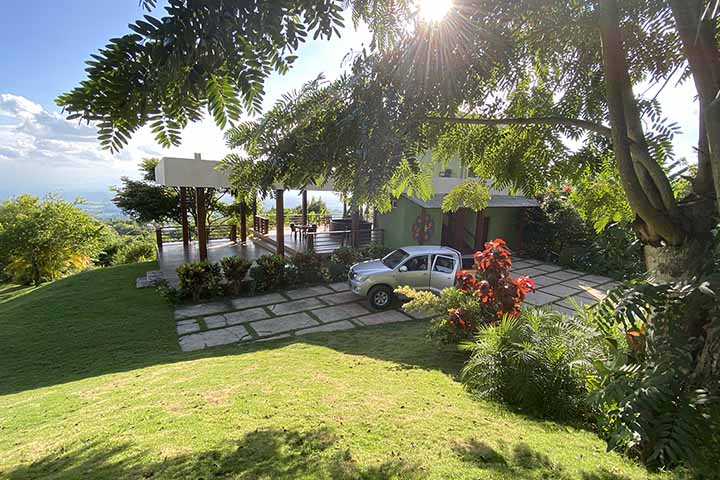
Through 12 three-hour workshops, you will:
- Explore the interconnectedness and global reach of our food system
- Develop strategies, insights, and projects to address current environmental crises
- Explore ways to raise awareness utilizing storytelling and community mapping
- Experience nutrition’s role in achieving total health for our bodies, communities, and planet
- Learn how to steward innovative regenerative land projects
- Have fun, make lifelong friends, and join a dynamic community of change-makers
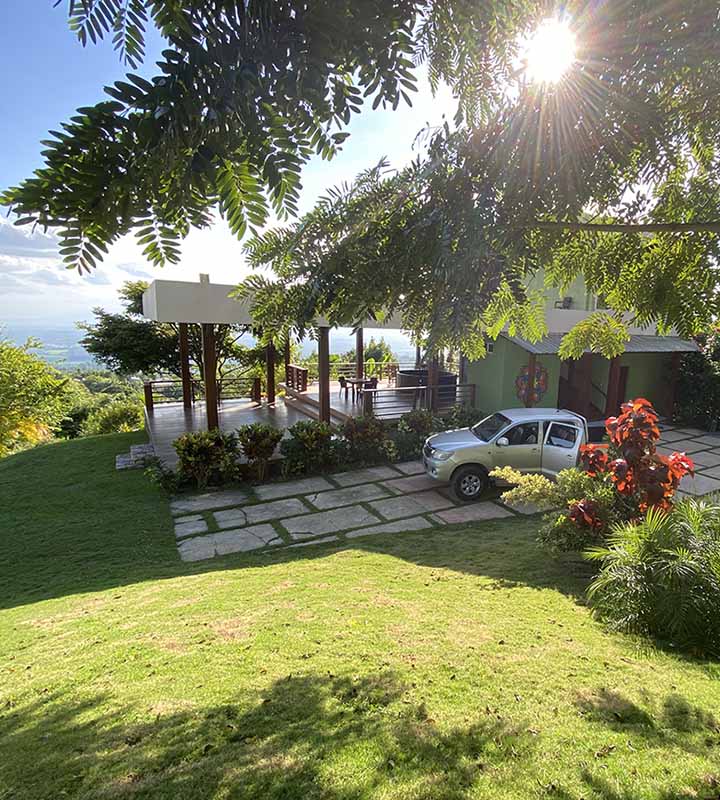
What's Included
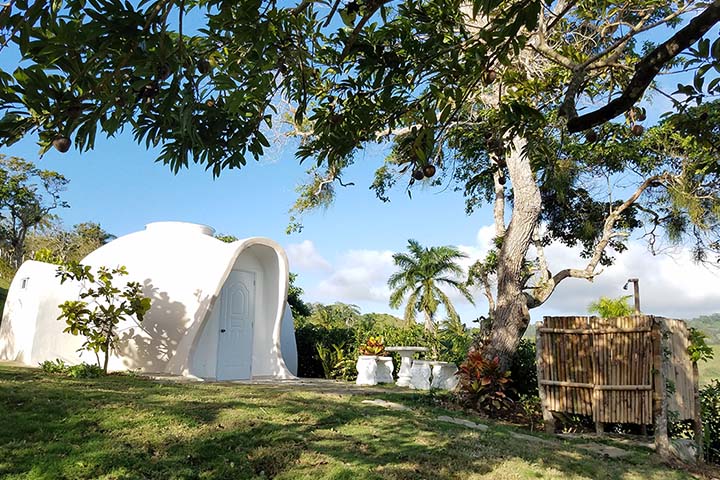
Lodging for seven nights
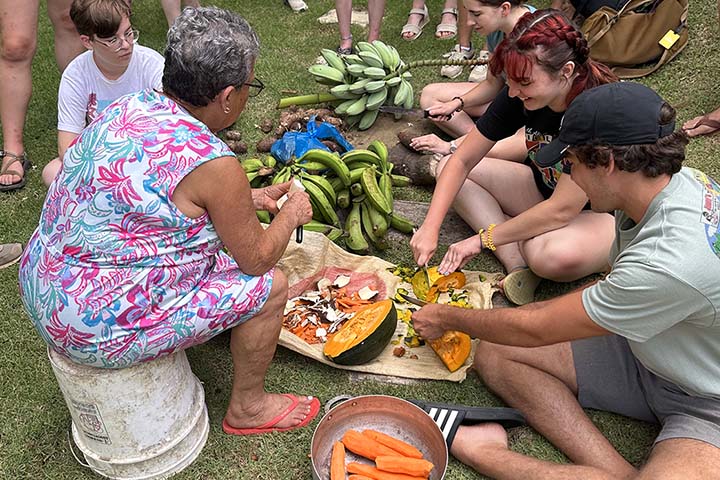
Breakfast, lunch, and dinner—plant-based, with locally grown ingredients
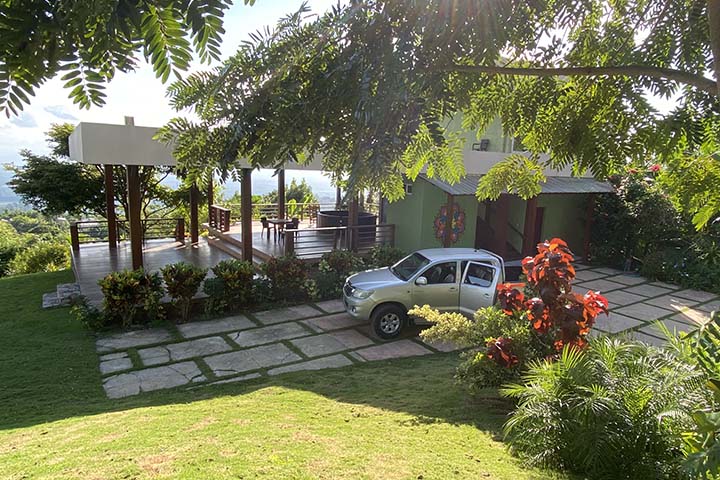
Transportation to and from the airport during set times and in-country transportation
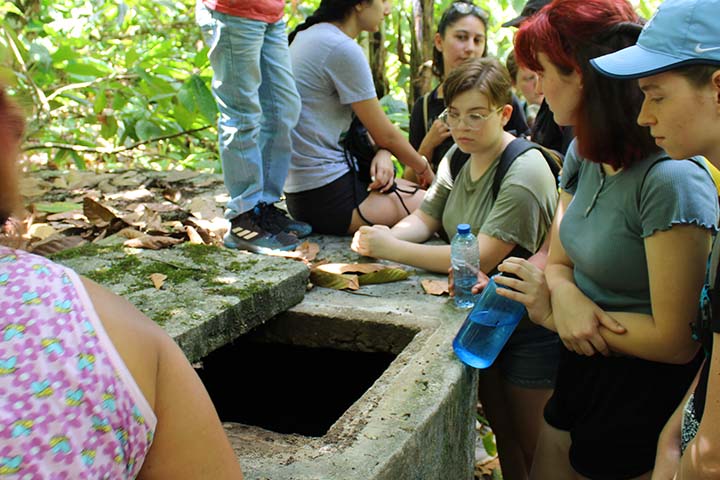
12 (three-hour) workshops
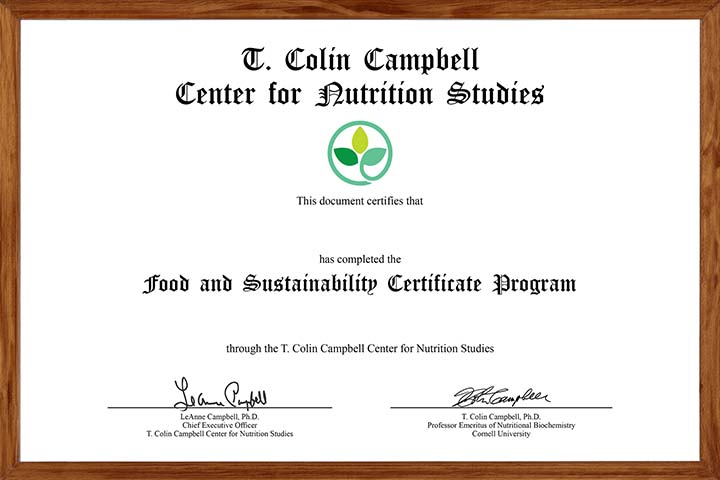
Food and Sustainability Certificate *
*The Food and Sustainability Certificate program is an online, self-paced program with 36 hours of content. Valued at $499, this certificate brings together over 15 food and sustainability experts to address the most critical issues facing us today: the environmental impacts of food production, the importance of food justice and accessibility, the complexity of international food systems, and most importantly, the positive changes we can make every day with our food choices.
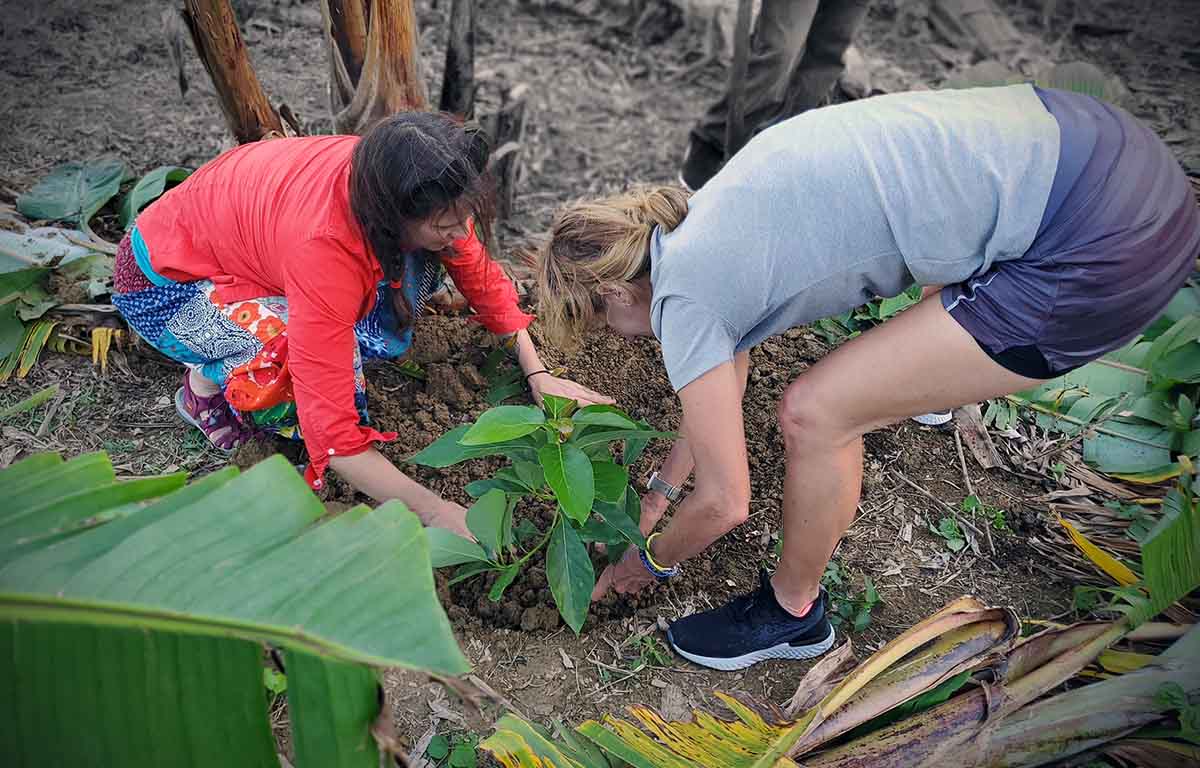
The RAÍCES Institute
Located in the mountains of La Cumbre, Dominican Republic, surrounded by small farms of cacao, avocados, and livestock, the RAÍCES Education Center is built for regenerative health and land use. Sitting atop a mountain overlooking the fertile Cibao Valley with mountains off in the distance, the center is where el cielo y la tierra se junta, “where the earth and sky join”—allowing one to touch and feel the clouds as they quietly pass through the center.
Daily Agenda
In this program, we explore solutions while providing a deeper understanding of the problems to better understand how they have been created and maintained so we can re-imagine and re-create a system that enhances rather than imperils life. We’ll do this through a series of engaging workshops while providing resources and real-life examples, ultimately striving to create a global community of people building resilient communities of health.
Day 1: Arrival and Welcome Orientation
Welcome Orientation
As folks arrive at the center, we will provide short tours of the facilities, allowing everyone to get acquainted with the education center and the sleeping cabañas. You will also have a chance to rest after traveling.
6–7 p.m. Dinner
7:30 p.m. Evening Activity
Goals and Objectives of Planetary Stewards and Introductions
Overview of the workshops, daily schedules, activities, and an opportunity for the group to get acquainted through a meet-and-greet game.
Day 2: Whole Systems Change and Community Mapping
8–9 a.m. Breakfast
9 a.m.–12 p.m. Morning Workshop
Introduction to La Cumbre / Let’s Map Our Community: An Overview on Whole Systems Change through a Local Example
Introduction to “Let’s Map Our Community,” which allows one to collect community data through surveys, focus groups, oral histories, and mapping out events/patterns. In particular, we will explore how community mapping is used in La Cumbre and surrounding communities to document the environmental changes over the past 30 years. This information is critical for raising community awareness and for developing future projects.
12–2 p.m. Lunch / Siesta
2–5 p.m. Afternoon Workshop
Hike and Community Dialogue
Hike around the area, visiting villages and homes to further explore concepts raised during our morning workshop.
6–7 p.m. Dinner
7:30 p.m. Evening Activity
Foods of the Caribbean
Day 3: Agriculture and the Environment
8–9 a.m. Breakfast
9 a.m.–12 p.m. Morning Workshop
Agriculture and the Environment / Agricultural Regeneration Potential
Explore the global connections between agriculture, climate change, biodiversity loss, and environmental degradation to better understand how agricultural solutions can play a role in mitigating these existential environmental threats.
12–2 p.m. Lunch / Siesta
2–5 p.m. Afternoon Workshop
Tour of Farm Project / Introduction to Syntropic Agroforestry
Visit agroforestry projects organized by RAÍCES Global to model how agriculture can preserve biodiversity and regenerate dead soils and waterways.
6–7 p.m. Dinner
7:30 p.m. Evening Activity
Bachata & Merengue Dance Lessons
Day 4: Rivers and Waterways
8–9 a.m. Breakfast
9 a.m.–12 p.m. Morning Workshop
Waterkeepers
Around the world, more than 300 waterkeeper groups are dedicated to ensuring clean, healthy, and abundant water for all people and the planet. How are they doing this, and who are they? We will meet leaders of this group and explore their techniques.
12–1 p.m. Lunch
1–5 p.m. Las Tres Cruces River Tour
Las Tres Cruces River Tour
We will travel to Tres Cruces. Known as a water haven, this river once served as a site for a hydroelectric system and had a long history of importance for the surrounding villages. Today there are several small waterfalls, providing an opportunity to swim in the cool, refreshing mountain river.
6–7 p.m. Dinner
7:30 p.m. Evening Activity
Herbal Medicinal Teas, Reflection, and Relaxation
Day 5: Nutrition and the Modern-Day Food System
8–9 a.m. Breakfast
9 a.m.–12 p.m. Morning Workshop
Reverence for Animal Protein and Its Connection to Chronic Diseases
Explore the history of nutrition to better understand how animal protein has taken center stage, thus promoting diets that fuel chronic diseases and environmental degradation. What can we do, and how do jumpstart programs address these challenges?
12–2 p.m. Lunch / Siesta
2–5 p.m. Afternoon Workshop
Cooking Local Caribbean Meals
Hone plant-based cooking skills while learning about new ingredients and how to prepare delicious Caribbean dishes.
6–7 p.m. Dinner
7:30 p.m. Evening Activity
Chocolate Making with Cacao Grown at the Center
Day 6: Creating Resilient Communities of Health
8–9 a.m. Breakfast
9 a.m.–12 p.m. Morning Workshop
Bringing Food Home
Can you thrive on food grown only within a 100-mile radius? Why would we do this? What are the benefits and how would we do it? We’ll explore how this is done at the RAÍCES Education Center and Brownlee’s work on The Local Food Revolution: How Humanity will Feed Itself in Uncertain Times.
2–5 p.m. Afternoon Workshop
Stewardship through Seed Saving, Tree Nurseries, Food Swaps, Square Foot Gardening, Jumpstarts and More
You’ll choose one of these areas to focus on. Imagine your yard or a space within your community made into abundant food forests. What would you grow, where would you get your seeds and trees, how would you share this with others, and why would you do this? Examples of doing this will be shared through activities from Brightside Farms.
7:30 p.m. Evening Activity
Movie Screening: I AM
Day 7: Food Economics, Community Land Trusts, Reforestation, and Despedida
8–9 a.m. Breakfast
9 a.m.–12 p.m. Morning Workshop
Expanding a Global Commons through Communal Land Trusts / Communal Stewardship in Action
Explore the history of commoning and the enclosure before examining the role of communal land trusts in today’s world. Breakout groups will explore particular examples before convening to discuss the work of Global Roots in establishing conservation trusts paired with regenerative agriculture.
12–2 p.m. Lunch / Siesta
2–5 p.m. Afternoon Workshop
Translating What You’ve Learned / Whole Communities and Community Engagement
Translate everything covered from the study tour to your own personal contexts, creating and sharing personal action plans. We will also discuss how to stay connected through the Whole Communities platform.
6–7 p.m. Dinner
7:30 p.m. Evening Activity
Group Reflections and Live Music
Day 8: Departure
8–9 a.m. Breakfast
Departure
Locally Grown Whole-Food, Plant-Based Bounty
Our delicious locally sourced plant-based meals demonstrate the fantastic culinary variety of the Caribbean, where you’ll enjoy pumpkin gnocchis, yucca with peanutty greens, Dominican beans and rice, Zapote shakes, homemade chocolate, and so much more. In addition, participants will receive over 60 recipes to help support a healthy and regenerative lifestyle.
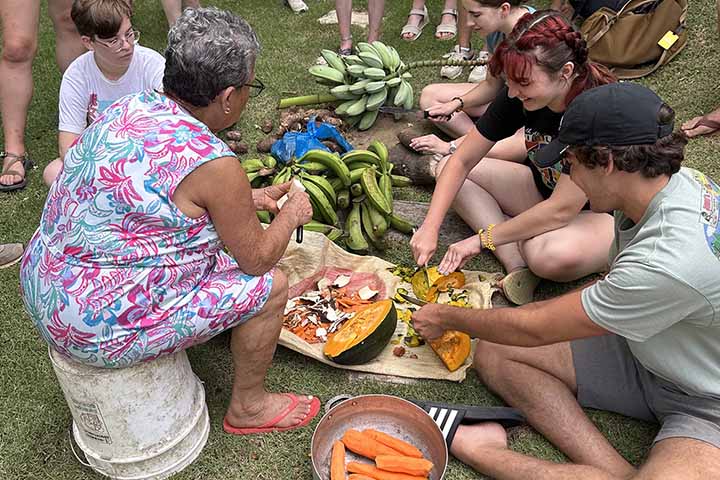
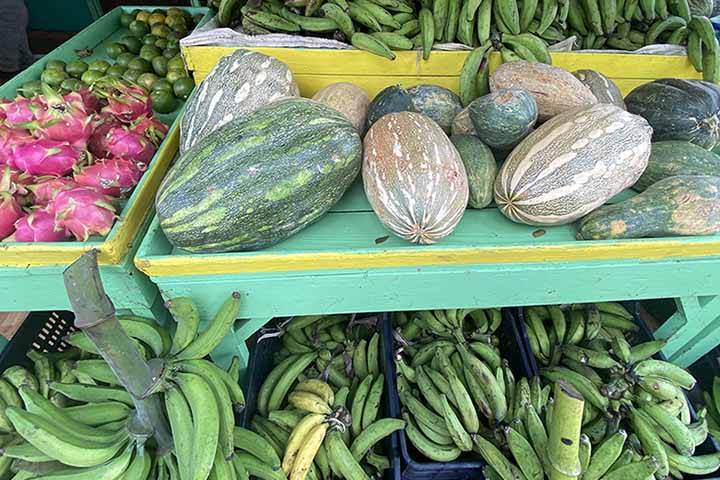
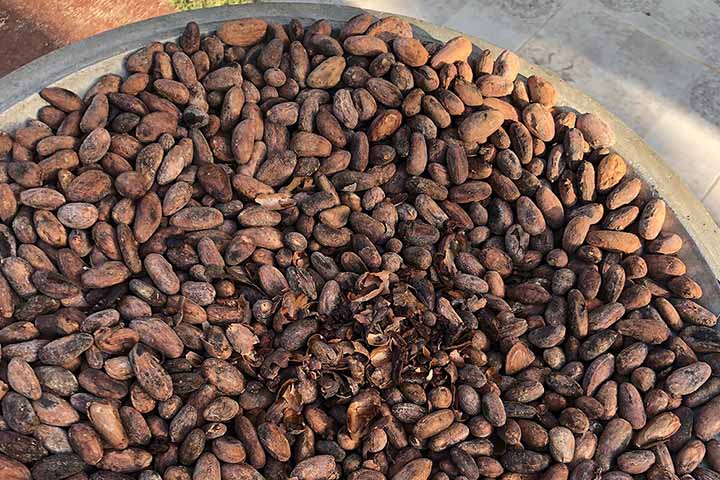
Frequently Asked Questions
This program is open to the general public. We encourage attendance from anyone interested in improving personal, community, and planetary health through a wholistic lens. Participants will have multiple opportunities for cross-cultural experiences and to develop strategies to improve nutritional and environmental outcomes within their own community.
Study tours are hosted at the RAÍCES Education Center in the mountains of La Cumbre. Participants are accommodated in the cabañas on site. Each room has access to a bathroom shared between two rooms, a double bed and a desk. The center has several communal areas, including a kitchen, dining area, and salon for workshops and events.
Please contact RAICES directly at info@raicesglobaldelacumbre.org.
No, it’s not necessary to speak Spanish. We have translators available for all organized dialogues and workshops, but if you want to practice your Spanish, you will have many opportunities.
Santiago (STI), Dominican Republic.
On day 1, please arrive between 12–5 PM, and on the last day, plan on departing between 7:00 AM–3:00 PM. We will cover transportation services during these hours. When you purchase your plane ticket, please send us your flight information so that we can coordinate the drivers. They will be at the airport with signs welcoming you as you arrive and bring you directly to the education center.
Please let us know if you arrive or depart outside these hours so we can arrange separate transportation. The fee for those arriving outside these hours is $40 per person.
You will be served three daily whole plant-based meals, prepared using delicious, local Dominican ingredients. Please let us know of any allergies or further dietary restrictions prior to arrival.
Cancellations received in writing up to three weeks before the education tour will be refunded the full registration fee, less a 10% administrative fee. No refunds will be issued thereafter. Substitute participants will be accepted up to the start date of the event.
The RAÍCES Education Center is the physical manifestation of a collaborative effort between three nonprofit organizations: the T. Colin Campbell Center for Nutrition Studies, RAÍCES Global de La Cumbre, and Global Roots. RAÍCES Global de La Cumbre is responsible for hosting, overseeing, and administering all education programs. As such, they are the ones liable for the education programs. Global Roots provides educational content at the center plus material and technical support for projects by program participants. The Center for Nutrition Studies provides nutritional expertise for programs and additional funding.
The Dominican Republic is a safe country to visit, especially outside large city centers. The US government currently labels the Dominican Republic as a level 2 travel advisory, which is the same as many other popular tourist destinations, including Spain, Denmark, the Netherlands, the United Kingdom, Germany, Costa Rica, and Italy.